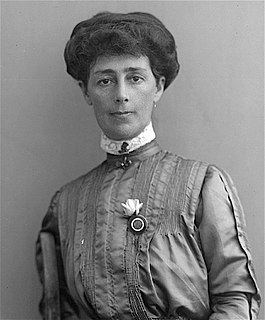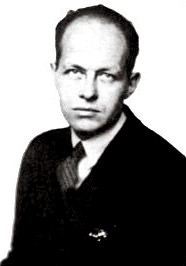A Quote by Orison Swett Marden
History furnishes thousands of examples of men who have seized occasions to accomplish results deemed impossible by those less resolute. Prompt decision and whole-souled action sweep the world before them.
Related Quotes
The study of Freemasonry is the study of man as a candidate for a blessed eternity. It furnishes examples of holy living, and displays the conduct which is pleasing and acceptable to God. The doctrines and examples which distinguish the Order are obvious, and suited to every capacity. It is impossible for the most fastidious Mason to misunderstand, however he might slight or neglect them. It is impossible for the most superficial brother to say that he is unable to comprehend the plain precepts and the unanswerable arguments which are furnished by Freemasonry.
The 4th of July is the first great fact in your nation's history — the very ring-bolt in the chain of your yet undeveloped destiny. Pride and patriotism, not less than gratitude, prompt you
to celebrate and to hold it in perpetual remembrance. I have said that the Declaration of Independence is the ring-bolt to the chain of your nation's destiny; so, indeed, I regard it. The
principles contained in that instrument are saving principles. Stand by those principles, be true to them on all occasions, in all places, against all foes, and at whatever cost.
Exasperation with the threefold frustration of action -- the unpredictability of its outcome, the irreversibility of the process, and the anonymity of its authors -- is almost as old as recorded history. It has always been a great temptation, for men of action no less than for men of thought, to find a substitute for action in the hope that the realm of human affairs may escape the haphazardness and moral irresponsibility inherent in a plurality of agents.
History, in [Nietzsche's] view, belongs to him who is fighting a great fight, and who needs examples, teachers and comforters, but cannot find them among his contemporaries. Without history the mountain chain of great men's great moments, which runs through millennia, could not stand clearly and vividly before me.
We need to hold in our hearts the possibility of a better world, not because we have candy-coated the problems or lied about what we can accomplish, but because we know that we do often win and make a difference, and that all the good things we have in the world are the results of those who have had the courage and commitment to have done this work before us.
I've got a lot of examples about moments where I thought something would work on film and it didn't work, but I never came to that decision with the film half shot, where I was stuck on a runaway train and couldn't jump off. On those occasions where I have admitted defeat, that this is not going to work, I haven't embarked on that project and made that movie.
The history of men of science has one peculiar advantage, as it shows the importance of little things in producing great results. Smeaton learned his principle of constructing a lighthouse, by noticing the trunk of a tree to be diminished from a curve to a cyclinder ... and Newton, turning an old box into a water-clock, or the yard of a house into a sundial, are examples of those habits of patient observation which scientific biography attractively recommends.
Suicide is the means of men whose resilience has been eaten away by rust, the rust of the daily round. They were born for action, but they have delayed their action; so action turns back on them with the swing of a pendulum. Suicide is an act, the act of those who have not been able to accomplish others. It is an act of faith, like all acts. Faith in one’s neighbor, in the existence of one’s neighbor, in the reality of the self and the other selves.





































